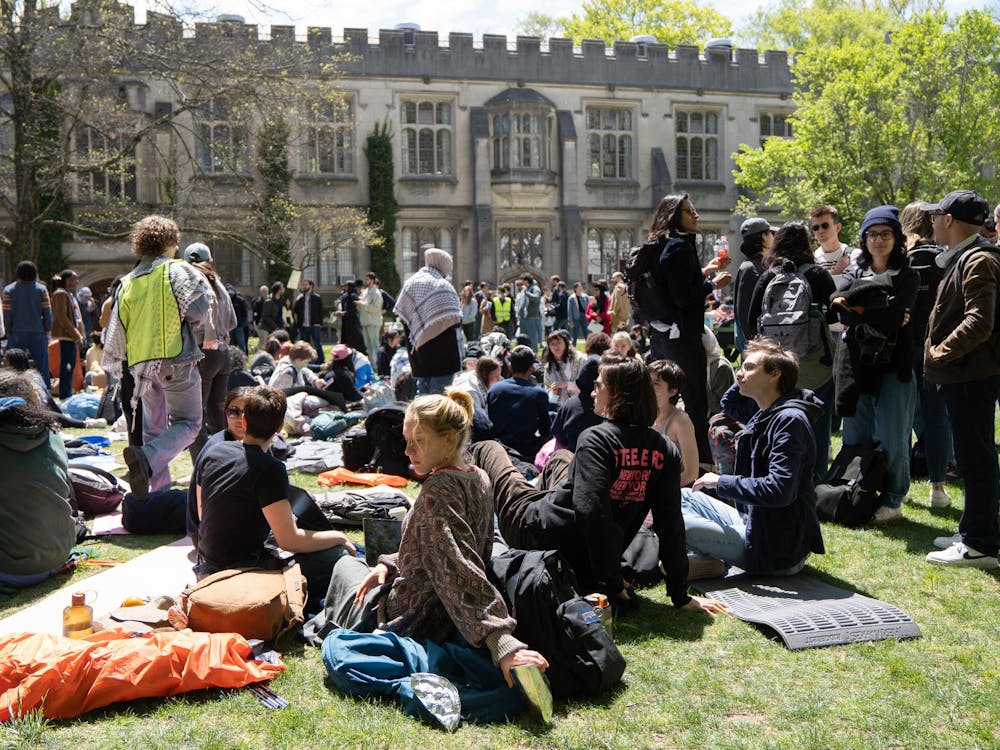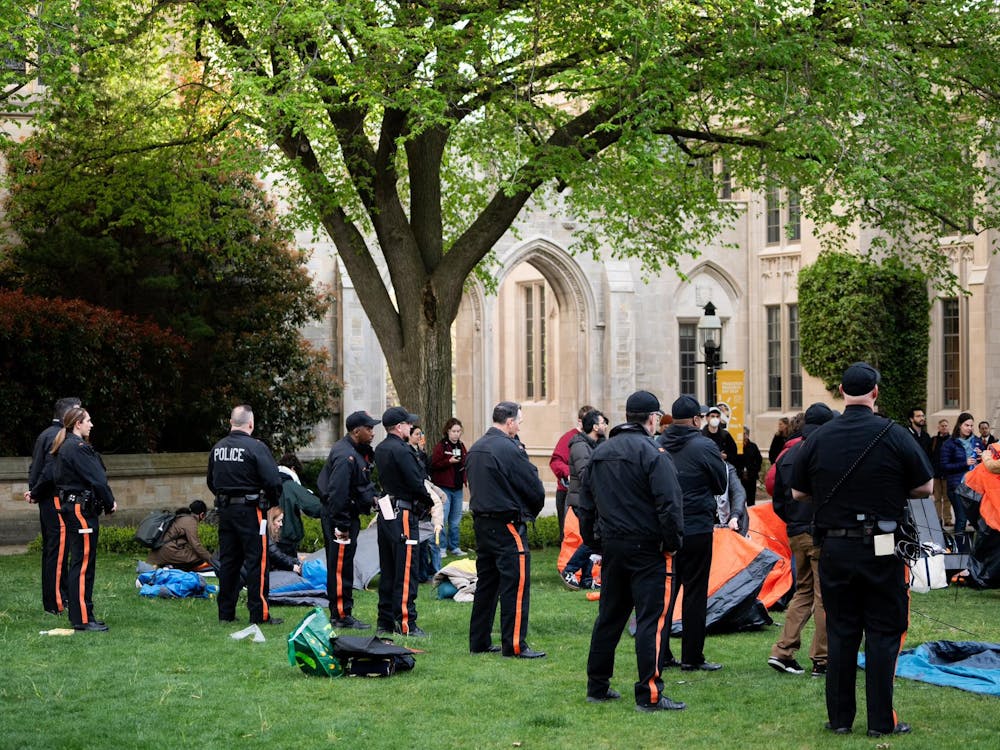Many people see the “freshman 15” as merely a myth made to scare incoming college freshmen. From The Atlantic to The Huffington Post, critics in the past few years have argued that claims of this weight gain are exaggerated. However, every year, there are some who actually do fall victim to the act of gaining 15 (or more) pounds during their first year of college. And while many others do not gain exactly 15 or more pounds, college weight gain in general is still a problem. A 2006 report by the National Center for Biotechnology Information found that college freshmen gained weight at a rate of 5.5 times greater than the rest of the population.
With all the stresses and changes that come with starting college, this is of little surprise. Especially at schools like Princeton, where large amounts of food are readily available through buffet-styled dining halls, late meal and study breaks, this problem seems to be more easily exacerbated.
At first, the weight gain might begin simply with the newfound sense of liberty suddenly thrust upon freshmen. No longer are their parents around to monitor their eating habits. However, this is not just an individual problem. From study breaks that try to encourage participation by providing food to literal eating clubs built around the premise of upperclassmen eating together, eating food is institutionalized as a large part of social life on campus. What starts as an innocent exploration of independence and a form of socialization with friends is reinforced through the campus environment.
These unhealthy eating habits are only made worse during high-pressure times such as midterms and finals, when eating junk food may be seen as a way to cope with stress. In addition to the other negative behavioral patterns developed through these stressful times, such as lack of sleep, students may feel that they have to compromise between health and academia. Freshmen who are enduring the University’s rigor for the first time may have an especially difficult time balancing health and schoolwork under the belief that they must meet the University’s rigorous academic standards.
Furthermore, the environment that allows these eating habits to develop is not the only issue. We should also focus on how such habits are treated and how they impact students. Students might simply feel sluggish from excessive eating or develop insecurities about the way their bodies are changing. Unfortunately, there is no easy fix. Simple solutions such as to stop eating so much and to exercise are easier said than done. It is already challenging for students to find a happy medium of eating healthily and exercising, let alone maintaining such a lifestyle.
Moreover, a greater concern is not only that these habits are being developed and made commonplace, but also that students might resort to even unhealthier habits. Students dissatisfied with their health might resort to extreme measures to maintain the appearance of health. For instance, they might resort to regurgitating their food in order to prevent themselves from gaining any weight. Alternatively, students might cut down on their food intake, nearly stopping eating all together.
I have encountered or heard of people who have been subjected to such conditions. However, such problems are almost never willingly addressed. Eating disorders still seem to be treated as a taboo discussion topic. I believe that this is due to the stigma surrounding those who suffer from eating disorders. Many people tend to believe that these people are at fault for their condition, rather than their condition being promoted by their environment. Some do not even treat eating disorders as a condition, but rather as a pathetic cry for attention. In a society where physical characteristics other than slenderness are often devalued, it can be easy to convince oneself to not eat or to throw up what one has eaten to conform to the body type everyone else seems to desire.
In college, we should not allow our peers to fall into such conditions. When we have suspicions that our peers are suffering from bad eating habits and eating disorders, we should try to help them to the best of our abilities, as opposed to believing that they are products of their own mistakes. Even if we are unequipped to help them, we should at least provide a non-judgmental ear in order to refer them to someone who can help.
The University’s academic rigor is stressful to deal with by itself, so having to deal with the added stress of eating habits and disorders is more than students should have to endure. Thus, as students of the same institution, we should assist our peers in battling these habits and disorders, rather than dismissing these issues as something trivial. We should reform our environment into one where such topics can be comfortably discussed. Without the fear of being criticized, students suffering from bad eating habits and eating disorders will be able to talk about their problems and receive the proper help that they need and deserve.
Matthew Choi Taitano is a freshman fromYigo, Guam. He can be reached at mtaitano@princeton.edu.









